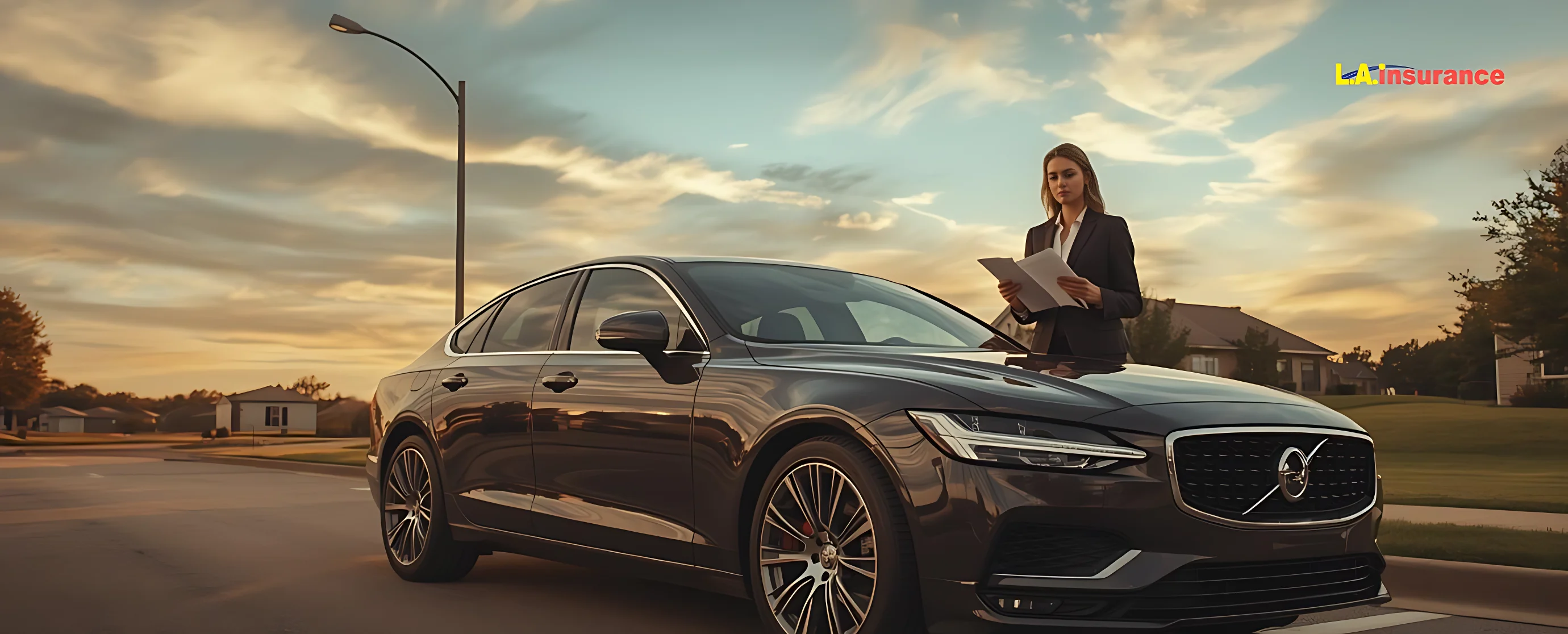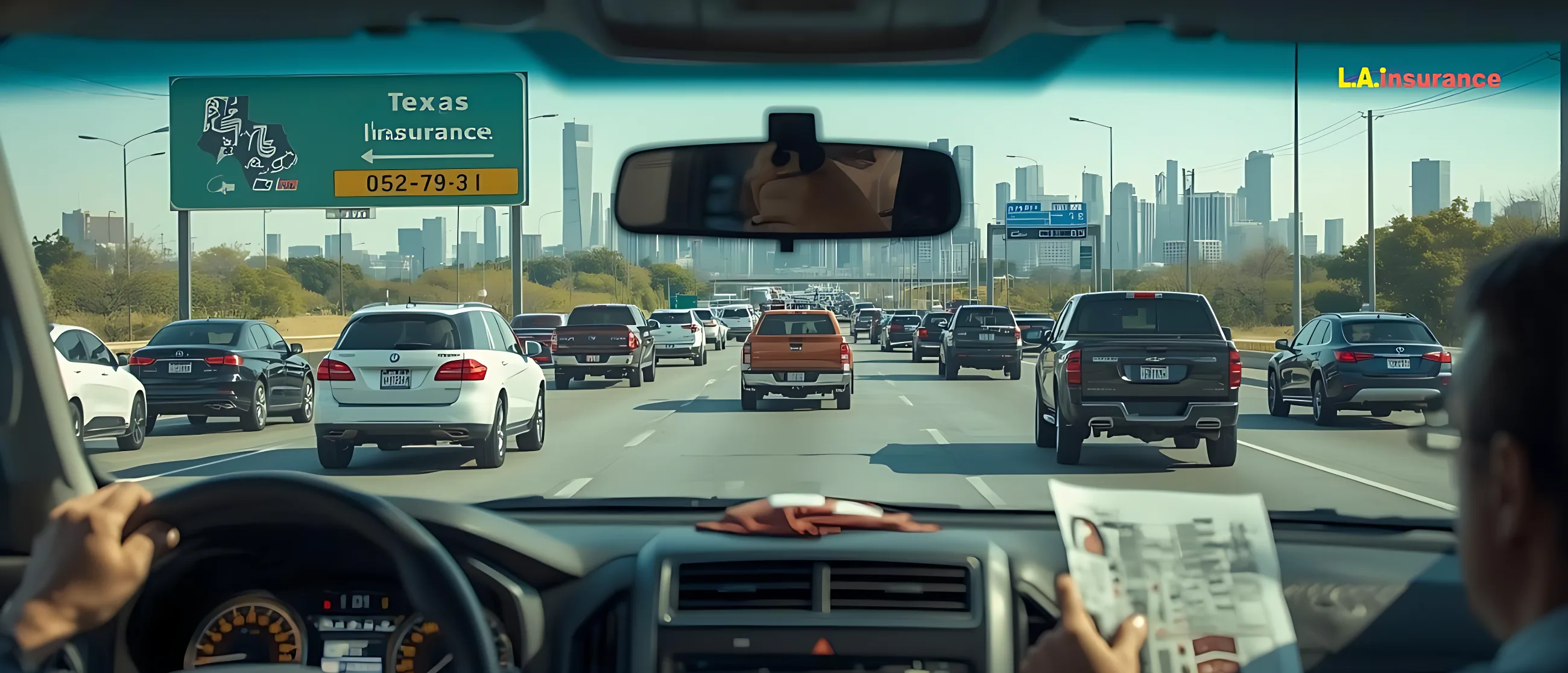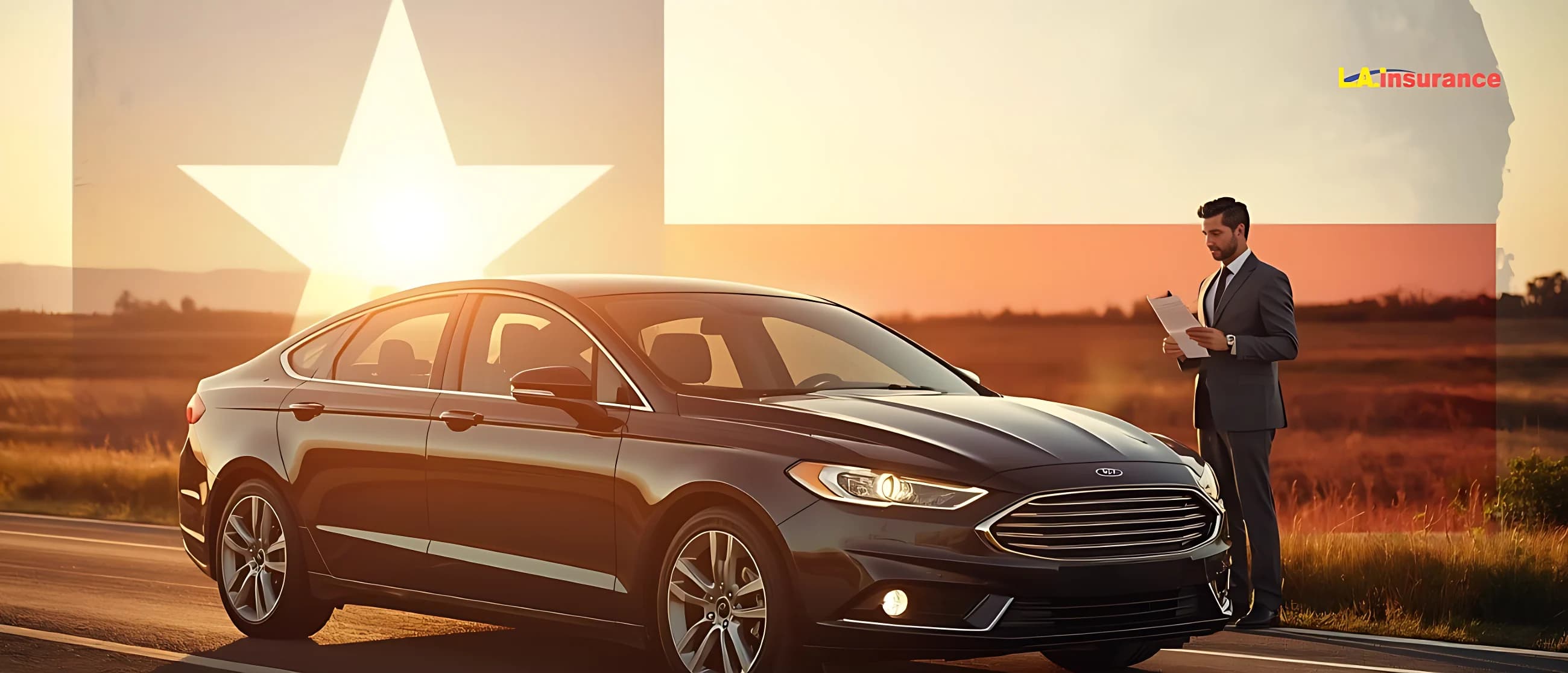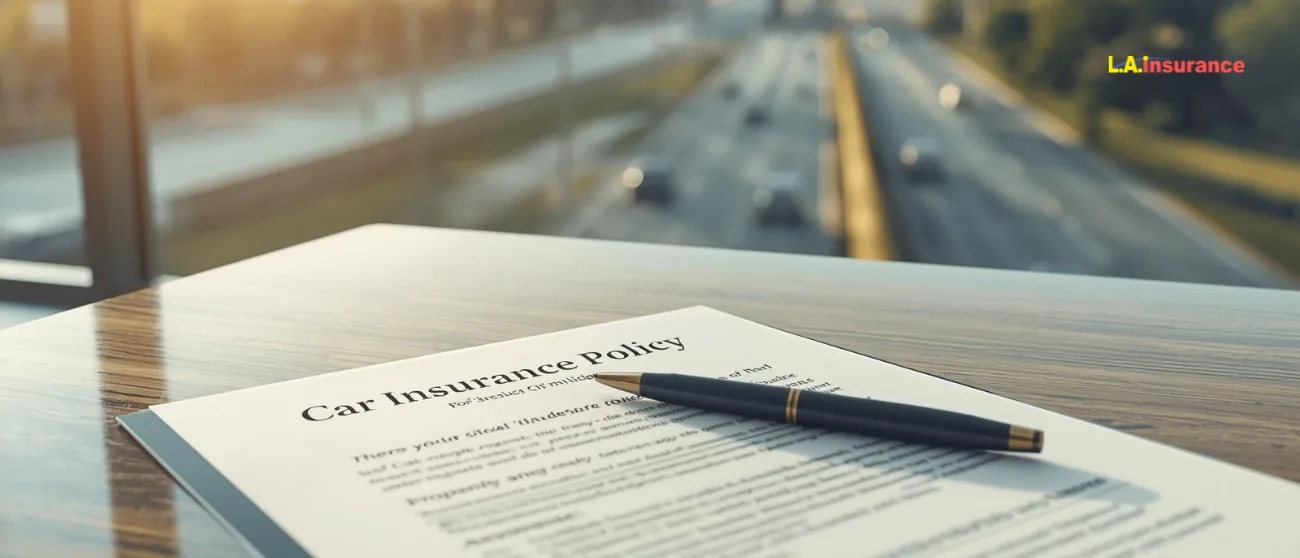
Publish Date: 20-11-2024
Auto Insurance
Last Updated: 19-02-2026
Will Insurance Pay for Rental Car During Repairs?
Accidents happen, and when they do, the question arises: Will insurance pay for a rental car during repairs? The short answer is yes. But only if you have rental reimbursement coverage. This is optional coverage. It helps cover the costs of renting a car while your damaged vehicle is being repaired after a covered claim. Without it, you may end up paying for a rental out of pocket, which can quickly add up.
Key Takeaways:
- Your insurance will pay for the rental car during repair if you already have a rental reimbursement coverage policy.
- This coverage is not included in your standard auto insurance policy, so it must be added separately.
- Even if you have rental car coverage, remember that it only applies to repairs related to covered claims, not mechanical breakdowns, routine maintenance, or vacationing rentals.
- Most policies have daily and per-claim limits (e.g., $30 per day, up to $900).
- Rental reimbursement coverage is quite cheap and costs between $2 and $15 per month.
- Without this coverage, you’ll likely pay for a rental car out of pocket, even if the accident wasn’t your fault.
- This coverage typically begins immediately after a claim is approved and lasts for the duration of the repairs.
- Depending on your insurance provider, public transport or rideshare costs may also be covered under rental reimbursement coverage which is why this coverage is also known as “transportation expense coverage”.
What Is Rental Reimbursement Coverage?
Rental Reimbursement, also known as rental car coverage or transportation expense coverage, is an optional add-on to your car insurance policy. If your car is being repaired in the shop after a covered claim, it will pay for your rental car during that time. If you don’t have it, you simply pay out-of-pocket for a rental car during repairs.
Adding this coverage requires you to pay an extra premium. However, it can save you money if you rely on a vehicle for daily tasks like commuting or running errands. Importantly, it only applies to situations where the damage to your car is caused by a covered accident or loss.
How Is Rental Reimbursement Coverage Different from Standard Car Insurance?
Standard car insurance typically covers liability, collision, and comprehensive claims. But it doesn’t cover the cost of renting a car during repairs. That’s where rental reimbursement coverage comes in.
For example, if your car is damaged in an accident, standard insurance pays for the repairs. However, you’re left to handle transportation costs on your own. Rental car coverage fills this gap. It ensures you can rent a car without financial pressure while your vehicle is being repaired.
Why Is Rental Reimbursement Coverage Considered Optional?
Rental reimbursement coverage is optional because not everyone needs it. Some people have access to a second vehicle or public transportation. Others may prefer to pay for a rental car out-of-pocket instead of adding to their monthly insurance premium.
Moreover, insurance providers don’t include this coverage automatically. So, you must opt in and pay an additional fee to include it in your policy. For many drivers, the mental comfort it provides outweighs the cost.
Will Insurance Pay for Rental Car During Repairs?
As we have already said, insurance can pay for a rental car during repairs. But there’s a catch. Your policy must include rental reimbursement coverage for this benefit to apply. Without having this add-on, you have to cover rental costs on your own.
This should also be kept in mind that, even if you have this type of car insurance coverage, it usually steps in after a covered loss, such as an accident or natural disaster that leaves your car undrivable. The insurer will pay for a rental car, up to the limits outlined in your policy, while your vehicle is in the shop. However, this coverage doesn’t apply to every situation. That’s why anyone thinking of adding this insurance coverage should also know what is and isn’t covered in this policy.
Does Insurance Cover Rentals for Non-Accident-Related Repairs?
No. Your rental car coverage won’t cover rentals for non-accident-related repairs. For example:
- Routine Maintenance: If your car is in the shop for an oil change or brake replacement, this coverage doesn’t apply.
- Mechanical Breakdowns: Issues like engine failure or transmission repair aren’t covered either.
So, this type of coverage only applies when your car is being repaired due to a covered claim. These claims typically include accidents, falling objects, or damage caused by natural disasters. In contrast, issues caused by regular wear and tear or non-covered events must be handled out of pocket.
If mechanical breakdown coverage is part of your policy, it might cover repairs and a rental car. However, this is separate from rental reimbursement coverage and is usually an additional policy add-on.
Can You Get a Rental Car Immediately After an Accident?
Yes, in most cases, you can get a rental car immediately after an accident – if you have rental reimbursement coverage. The process usually works like this:
- File a claim: Report the accident to your insurer and confirm your rental coverage. Learn how to file a claim after a car accident.
- Choose a Rental Car: Some insurers partner with rental agencies which allows you to pick up a car quickly.
- Start Using the Rental: Coverage typically kicks in once your claim is approved, and your vehicle is deemed undrivable.
If you’re not at fault in the accident, the other driver’s insurance may eventually reimburse your rental costs. However, this can take time. Having your own rental reimbursement coverage ensures you can get a car immediately without waiting for the at-fault party’s insurance to act.
Also, keep in mind that insurers often set daily and total reimbursement limits. For instance, they might cover up to $30 per day for 30 days. If the repair process takes longer or you exceed your daily limit, you’ll need to pay the difference out of pocket.
Read More: What to Do After a Hit and Run?
How Long Will Insurance Pay for a Rental Car During Repairs?
Insurance will pay for a rental car during repairs, but only for a limited time. The duration depends on your policy’s daily and per-claim limits. Most rental reimbursement policies cover rentals for up to 30 days. However, this may vary depending on the insurance provider you choose and the specific coverage you’ve purchased.
Your coverage starts as soon as your claim is approved and lasts until your car is repaired or declared a total loss. If repairs are completed sooner than expected, the coverage ends right away. On the other hand, if repairs take longer than the limit allows, you’ll need to cover the extra days out of pocket.
What Happens If Repairs Take Longer Than the Policy Limit?
Sometimes car repair can exceed your policy’s rental coverage limit. For instance, complex issues like frame damage or engine replacement may take weeks to fix. If your policy only covers 30 days, and repairs take 45 days, you’ll have to pay for the remaining 15 days yourself.
To prepare for such situations:
- Check your policy limits before filing a claim.
- Communicate with the repair shop to get an estimate of how long repairs will take.
- Plan ahead in case your rental coverage ends before repairs are complete.
Also, if your car is declared a total loss, insurers often cover the rental car for only a few days after they notify you of the decision. This way, you’ll get time to arrange for a replacement vehicle. However, you need to act quickly as insurers won’t extend coverage for an unlimited period.
How Do Insurance Companies Define Per-Claim Limit?
Rental reimbursement policies set both daily limits and per-claim limits. These determine how much your insurer will pay for a rental car.
- Daily Limits: This is the maximum amount your insurer will pay per day for the rental. Common daily limits range from $20 to $50. If your rental costs exceed this amount, you’ll need to cover the difference.
- Per-Claim Limits: This is the total amount your insurer will pay for a single claim. For instance, a policy with a $30 daily limit and a $900 per-claim limit will cover 30 days of rental at $30 per day. If your rental costs or repair time exceed these limits, you must pay with your own money.
So, if you intend to purchase rental car reimbursement coverage and add it to your full coverage auto insurance policy or liability-only policy, review both daily limits and per-claim limits. You can choose higher limits by paying slightly higher premiums. Go for it only, if necessary, based on your driving behavior and potential risks.
What Are the Limitations of Rental Reimbursement Coverage?
Rental car reimbursement coverage is helpful, but it comes with a few limitations. These restrictions define when the coverage applies and what expenses it will or won’t cover.
First, rental reimbursement only applies if your car is in the shop due to a covered claim. This means damages from an accident, a fallen tree, or smaller incidents that your insurance policy covers. However, vacation car rentals, multi-vehicle policies, mechanical breakdowns, and routine maintenance are all situations where rental reimbursement coverage does not apply.
- Vacation Car Rentals: Rental reimbursement doesn’t apply if you rent a car for a trip or vacation. In case you’re traveling for business or leisure, you’ll have to pay for the rental car out of pocket.
- Multi-Vehicle Insurance Policy: If you add the rental car coverage to your multi-vehicle insurance policy, it won’t cover all vehicles. Instead, you’ll get covered for one specific car. For instance, if only your sedan has this coverage, but your truck is in an accident, the policy won’t cover rental costs.
- Mechanical Breakdowns: If your car breaks down due to a mechanical issue, such as engine failure or transmission problems, rental reimbursement coverage won’t help. These situations fall under wear and tear, which is not included in most car insurance policies. For this, you might need separate mechanical breakdown insurance or an extended warranty.
- Routine Maintenance: Routine services such as oil changes, brake repairs, and tire replacements are also excluded. If your car is in the shop for maintenance, you’ll have to arrange for transportation yourself.
- Extra Cost: Your rental car coverage doesn’t cover extra costs like fuel, rental insurance, or optional add-ons such as GPS. These are your responsibilities.
Does Rental Reimbursement Coverage Cover Luxury Vehicles or Large Cars?
In most cases, rental reimbursement coverage doesn’t extend to luxury vehicles or large cars. Insurance policies are designed to cover standard rentals such as compact or mid-sized cars, which are more affordable and practical for most drivers.
If you need a luxury or larger vehicle, you might face additional costs. Insurance will only be reimbursed up to the daily limit specified in your policy. For instance, if your policy allows $30 per day but you rent an SUV costing $50 per day, you’ll have to pay the extra $20 yourself.
How Much Does Rental Reimbursement Coverage Cost?
As of February 2026, Rental reimbursement coverage is affordable and typically costs between $2 and $15 per month, depending on your insurer, location, and coverage limits. For instance, a policy with a $30 daily limit and a $900 total claim cap may cost around $5 per month. This small premium can save you hundreds of dollars if you need a rental car after an accident. Remember, choosing a reliable and affordable insurance agency for your rental car coverage is necessary to get the desired coverage and save money in the long run.
Why It’s Cost-Effective?
Without this coverage, renting a car can be expensive. Daily rental rates average $35 to $80 for economy vehicles depending on your location and larger cars or SUVs cost more. If your repairs take two weeks, you might spend over $1000 out of pocket. So, adding this coverage to your policy ensures financial safety for these unexpected costs.
How Do I File a Claim for Rental Car Reimbursement Coverage?
Filing a claim for rental reimbursement is simple. Start by reporting the accident to your insurer. Confirm your policy includes rental reimbursement coverage. Then, choose a rental car provider. If your insurer has partnered with rental agencies, opt. for one to simplify the process.
Next, submit the necessary documents, such as repair estimates or receipts. Some insurers handle payments directly with the rental agency. While others may require you to pay upfront and file for reimbursement later. Keep all receipts for faster processing.
Lastly, ensure the rental car costs stay within your policy’s daily and total limits. If your expenses exceed these limits, you’ll need to pay the difference out of pocket. This step-by-step process ensures a hassle-free claim, keeping you on the road while your car is being repaired.
Things to Consider Before Adding Rental Reimbursement Coverage
Adding rental reimbursement coverage to your auto insurance policy is a smart choice for many drivers, but it’s not for everyone. To decide if it’s right for you, consider your driving habits, access to alternative transportation, and potential repair costs after an accident.
Questions to Ask Your Insurance Agent
Before adding rental reimbursement coverage, discuss these key points with your agent:
- What are the daily and total claim limits?
- Do I need comprehensive and collision coverage to qualify?
- Are partner rental agencies available?
- Does it cover alternative transportation?
Should I Consider Rental Reimbursement Coverage?
Yes, if you depend on your car for daily life and don’t have a second vehicle, rental reimbursement coverage is worth it. Without it, renting a replacement car during repairs can be expensive. According to the Insurance Information Institute, “after a car accident, cars typically stay in the repair shop for about two weeks.” Renting a replacement vehicle during this time can be expensive and cost you a few hundred dollars.
If your budget doesn’t allow for unexpected rental costs, this coverage can help you feel peace For just a few dollars a month, you can avoid paying hundreds – or even thousands – out of pocket during a stressful time.
The Bottom Line
Your car insurance will pay for the rental car during repairs if you have a rental car reimbursement coverage. Having this coverage can save you from costly rental fees after an accident. It’s not automatic – you must add it to your policy. For a few dollars a month, it offers peace of mind during repairs. Consider your driving habits, budget, and repair costs before deciding. Most policies cover up to 30 days of rental, but limits apply. Without this coverage, you may face unexpected out-of-pocket expenses. If you rely on your car daily, this small investment can make a big difference.
Related Articles:
Does Car Insurance Cover Scratches and Dents?
Does Car Insurance Cover Auto Repairs?
Frequently Asked Questions (FAQs)
What Can I Do If My Rental Coverage Isn't Enough During Car Repairs?
If your rental coverage isn’t sufficient for the repair duration, you can:
- Request an extension from your insurer or dealership.
- Use alternative transportation methods: share a ride, taxi, bike, or public transit.
- Consider renting a car out-of-pocket while comparing rental prices.
Is There a Limit to Free Rental Days from the Other Driver's Insurance?
Yes, there is usually a limit to the number of free rental days provided by the other driver's insurance company. This limit can vary, but it's often around 30 days. It's best to check with the insurance company for specific details.
Will Rental Reimbursement Coverage Pay for Towing Services?
No, rental reimbursement coverage does not pay for towing services. Rental reimbursement specifically covers the cost of renting a vehicle while your car is being repaired due to a covered loss. Towing services fall under a separate optional coverage, often referred to as towing and labor coverage. If you need towing, ensure your policy includes this additional feature.
Does Insurance Cover Rental Car for Mechanical Repairs?
No, insurance usually doesn’t cover rental cars for mechanical repairs. Rental reimbursement coverage only applies to repairs caused by a covered claim, such as accidents or damage from natural disasters. Mechanical breakdowns, routine maintenance, or wear and tear are excluded. For these situations, you might need separate mechanical breakdown coverage, which can sometimes include rental car benefits.
Do You Need Rental Reimbursement Coverage If You’re Not At Fault?
Yes, rental reimbursement coverage is still essential. Fault determination can take time, delaying reimbursement from the at-fault driver’s insurer. With your own coverage, you can get a rental car immediately. Your insurer pays upfront and later recovers the costs from the at-fault party.
How Does Fault Determination Delay Affect Rental Car Costs?
Fault determination delays can leave you paying rental costs out of pocket. Insurers may take weeks to decide on liability. Without rental reimbursement, you’ll cover expenses upfront and risk losing money if the claim is denied or limited. Having your own coverage ensures immediate financial protection.
Does Full Coverage Insurance Cover Rental Cars?
Full coverage insurance usually covers rental cars when you use them for personal reasons, like vacations or while your car is being fixed. This means your collision, comprehensive, and liability coverage often applies to rental cars in the U.S. and Canada. However, it's wise to check your policy for any specific rules or exceptions. For instance, business use or international rentals may not be covered.
Can I Rent a Car Through My Insurance for Vacation?
Yes, you can often use your personal car insurance to rent a car for vacation, as most policies extend coverage to rentals. However, this applies only within policy limits and for personal use, not business travel. Also, protection like a collision damage waiver may be necessary to cover damage or theft, especially if your policy has high deductibles or limited coverage.
References:
- Blincoe, L., Miller, T., Wang, J.-S., Swedler, D., Coughlin, T., Lawrence, B., Guo, F., Klauer, S., & Dingus, T. (2023, February). The economic and societal impact of motor vehicle crashes, 2019 (Revised) (Report No. DOT HS 813 403). National Highway Traffic Safety Administration.
- Does auto insurance cover a rental replacement car after an accident? | III. (n.d.). https://www.iii.org/article/will-my-insurance-cover-renting-car-after-accident
Editorial Disclaimer
The information provided on this blog is for general informational purposes only and does not constitute professional insurance, legal, or financial advice. Coverage and rates are subject to individual eligibility, underwriting guidelines, and state availability. For specific questions regarding your policy or to get an accurate quote, please contact a licensed L.A. Insurance agent directly. We're an independent agency and not a direct insurance carrier. For more information on how we operate and handle your data, please see our Terms and Conditions and Privacy Policy.
Tag :
cheap car insurance
car maintenance








